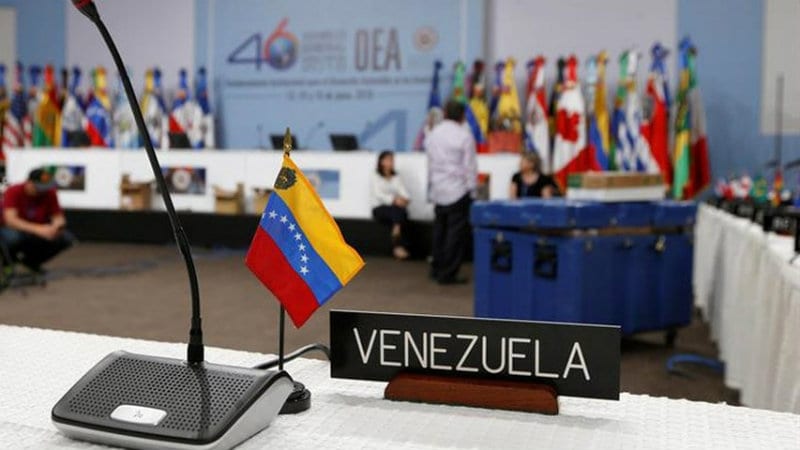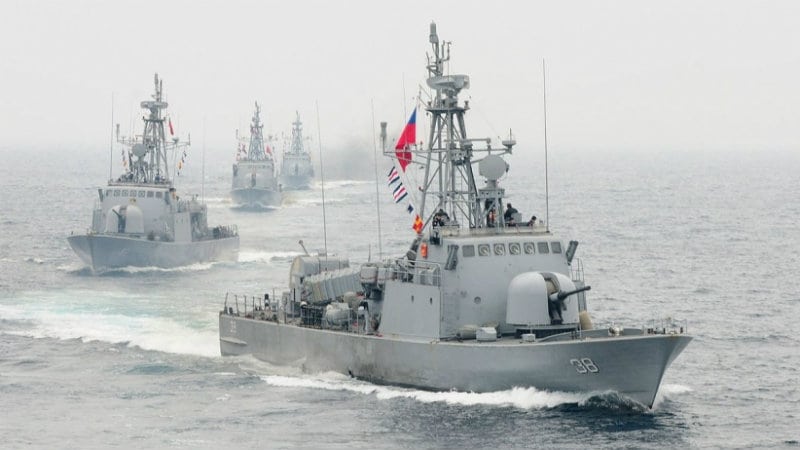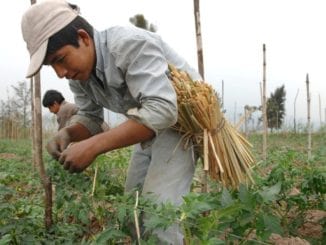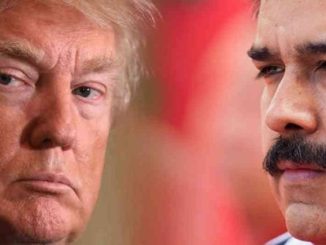
CARACAS/WASHINGTON – A meeting of the Organization of American States (OAS) to discuss the crisis in Venezuela ended without agreement in Washington this week amid the growing protests against the socialist government.
A declaration criticizing the Venezuelan government was put forward by countries including the United States and Mexico but was opposed by some of Venezuela’s Caribbean allies.
Meanwhile in Caracas, anti-government protesters and security forces clashed. Almost 60 people have died in protest-related violence since April 1.

Representatives of 33 countries from the western hemisphere attended the meeting on Venezuela’s crisis at the OAS headquarters.
Venezuela did not show up. The South American country announced in April that it would withdraw from the regional body after a majority of its members voted in favor of holding the meeting.
Canada, Mexico, Panama, Peru and the United States put forward a declaration calling for an immediate end to the violence, for political prisoners to be freed and respect for human rights and the rule of law.
The declaration also included a demand that the Venezuelan government shelve plans for the creation of a citizens’ assembly to rewrite the constitution.
The plan was announced by President Nicolás Maduro on May 1 as a way of bringing the country together but opposition politicians have denounced it as a “fraud” and a way to further delay overdue gubernatorial elections.
U.S. State Department Undersecretary for Political Affairs Thomas Shannon said the ultimate goal of the declaration was to “return to full respect for the rule of law, full respect for freedoms of political expression and participation” in Venezuela.
But it failed to get the support of two-thirds of the OAS countries present, as Caribbean nations which rely on cheap oil from Venezuela put forward their own, softer declaration.
Nicaragua, a staunch ally of Venezuela, opposed the crisis meeting altogether, arguing Venezuela was the victim of a “political lynching”.
After five hours of discussion and no agreement, member states agreed to postpone the meeting to a later date in June.
The Venezuelan government celebrated the suspension as a victory against “interventionist countries” trying to meddle in Venezuelan affairs.
While the discussions were under way in Washington, thousands of anti-government protesters took to the streets in Caracas again and tried to march to the foreign ministry.
Opposition politicians said at least 89 people were injured when protesters clashed with security forces blocking their way.
Constituent Assembly Election on July 30
Meanwhile on Sunday, National Electoral Council (CNE) chief Tibisay Lucena announced that the body would propose holding the election for Venezuela’s constituent assembly on July 30.

The “definitive date,” she said, is being proposed by the National Election Board and will be discussed in the coming hours by the five members of the CNE, four of whom are supporters of the Nicolas Maduro government, which is pushing for the constituent assembly to rewrite the national charter.
On July 30, according to the board’s proposal, the 545 members of the constituent assembly will be elected.
Lucena emphasized that 55,314 people have registered on the CNE Web site with an eye toward being candidates in the election,
The selection of 181 of the representatives by social and political sectors has been criticized by the opposition MUD coalition and by election official Luis Emilio Rondon, but the government’s plan is to draw assembly members from the peasantry (8), fishermen (8), workers (79), students (24), the disabled (5), retirees (28), businessmen (5) and commune council members (24).
The CNE president said that women comprise 62 percent of the people aspiring to serve on the assembly from the seven sectors, while men make up the same percentage in the other grouping of assembly members, namely those selected by geographic location.
Maduro’s proposal, approved by the CNE, is for all the country’s municipalities to elect one representative, except for the state capitals, which will have two each, and the Caracas municipality of Libertador, which will elect seven.
The MUD has said it will not participate in this process, which it has called fraudulent and it has called on its supporters to continue taking to the streets in the large anti-government demonstrations that have been under way since April 1 and which have left 65 people dead, more than 1,000 injured and 422 under arrest.



